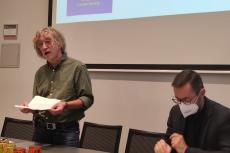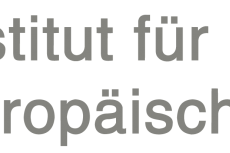The Legacy of 1956, 1989 and 2004 from the Perspective of 2021 in Hungary
The Legacy of 1956, 1989 and 2004 from the Perspective of 2021 in Hungary
- hybrid conference organised by the Hungarian Europe Society -
Date: 22 October 2021, Friday 10:30 a.m. - 1:00 p.m. (CET)
Venue: ibis Styles Budapest Center (Rákóczi út 58., 1074 Budapest) & Zoom
1989 represents a turning point in history, both for Central Europe and the whole European continent. In East Germany, Poland, Czechoslovakia or Hungary, democratic opposition managed in a short period to peacefully oust communist elites that had been ruling their countries for several decades. Hence, between 1989 and 1991 the new political elites were able to reunify successfully with a democratic neighbour (Germany) or build the democratic foundations of their states (Czechia, Poland, Hungary). The German reunification in 1990 itself can be considered as the preliminary step of the integration of Central Europe with the rest of the continent. Meanwhile, the democratic and economic transitions of the 1990s constituted necessary preconditions for Central European countries to achieve their accession to the Euro-Atlantic organizations such as the European Union and NATO. The transition was sometimes painful but successful, as 2004 became the symbol of unity of the European continent with the biggest ever European Union enlargement.
Today it is particularly important to recall the legacy of democratic transition of 1989 and the largest European integration of 2004 when nationalism, populism, and authoritarian trends are on the rise in Europe, particularly in Central European states and undermines the unity of the EU. Indeed, this legacy may serve as a crucial source of inspiration for activities aiming at the reinvigoration of European values.
The main goal of our project EUritage is to remind the European citizens about the importance of democratic transition of Central Europe and its accession to the EU and the values (liberal democracy, rule of law, civic national identity, free market economy) underpinning these processes. The same values make the foundations of the Union.
Agenda
10.30 Welcome: István Hegedűs (chairman, Hungarian Europe Society)
10.35 Historic Perspectives - Hungary at the Crossroads
Speaker: Gergely Romsics (historian, Institute of History at the Research Centre for Humanities, Budapest)
Discussant: István Hegedűs (chairman, Hungarian Europe Society)
11.15 Video presentation: “A European Success Story? Central Europe from Democratic Revolutions to EU Accession”
11.30 Round-table discussion:
Adam Balcer (senior fellow, WiseEuropa, Warsaw)
Ladislav Cabada (vice-rector for Research and Creative Work, Metropolitan University, Prague)
Zsuzsanna Szelényi (former Member of the Hungarian Parliament, 1990-94, 2014-18)
István Szent-Iványi (former Member of the Hungarian Parliament, 1990-2004)
Moderator: Erik Uszkiewicz (vice-chairman, Hungarian Europe Society)
12.45 Student challenge
Máté Bozóky (winner of the Hungarian essay competition)
12.55 Concluding remarks
István Hegedűs (chairman, Hungarian Europe Society, Budapest)
Please note that the language of the event is English and no translation will be provided.
This event is being video recorded for archival, educational and related promotional purposes. By attending or participating in this event you are giving your consent to the video recording.
Please note that proof of COVID-19 vaccination is required for in-person participation.
| Csatolmány | Méret |
|---|---|
| 244.22 KB |










